LITERATURE AND SOCIAL CHANGE
SELECTED ESSAYS AND INTERVIEWS 1994-2014
ESSENTIAL ESSAYS SERIES 69
Guernica Editions Inc. acknowledges the support of the Canada Council for the Arts and the Ontario Arts Council. The Ontario Arts Council is an agency of the Government of Ontario.
We acknowledge the financial support of the Government of Canada.
Tom Wayman
IF YOURE NOT FREE AT WORK, WHERE ARE YOU FREE?
LITERATURE AND SOCIAL CHANGE
SELECTED ESSAYS AND INTERVIEWS 1994-2014
Copyright 2018, Tom Wayman and Guernica Editions Inc.
All rights reserved. The use of any part of this publication, reproduced, transmitted in any form or by any means, electronic, mechanical, photocopying, recording or otherwise stored in a retrieval system, without the prior consent of the publisher is an infringement of the copyright law.
Michael Mirolla, editor
Guernica Editions Inc.
Cover Design: David Moratto
Interior Design: Rafael Chimicatti
1569 Heritage Way, Oakville, (ON), Canada L6M 2Z7
2250 Military Road, Tonawanda, N.Y. 14150-6000 U.S.A.
Distributors:
University of Toronto Press Distribution,
5201 Dufferin Street, Toronto (ON), Canada M3H 5T8
Gazelle Book Services, White Cross Mills
High Town, Lancaster LA1 4XS U.K.
First edition.
Printed in Canada.
Legal Deposit First Quarter
Library of Congress Catalogue Card Number: 2017960391
Library and Archives Canada Cataloguing in Publication
Wayman, Tom, 1945
[Essays. Selections]
If you're not free at work, where are you free? : literature
and social change : selected essays and interviews 1994-2014 / Tom Wayman.
Issued in print and electronic formats.
ISBN 978-1-77183-287-8 (softcover).--ISBN 978-1-77183-288-5
(EPUB).--ISBN 978-1-77183-289-2 (Kindle)
1. Literature and society. 2. Essays. I. Title.
PS8595.A9A6 2018 | C814.54 | C2017-907293-5 |
C2017-907294-3 |
OTHER BOOKS BY TOM WAYMAN
COLLECTIONS OF POEMS:
Waiting For Wayman (1973)
For And Against The Moon (1974)
Money And Rain (1975)
Free Time (1977)
A Planet Mostly Sea (1979)
Living On The Ground (1980)
Introducing Tom Wayman: Selected Poems 1973-80 (1980)
The Nobel Prize Acceptance Speech (1981)
Counting The Hours (1983)
The Face of Jack Munro (1986)
In a Small House on the Outskirts of Heaven (1989)
Did I Miss Anything? Selected Poems 1973-1993 (1993)
The Astonishing Weight of the Dead (1994)
Ill Be Right Back: New & Selected Poems 1980-1996 (1997)
The Colours of the Forest (1999)
My Fathers Cup (2002)
High Speed Through Shoaling Water (2007)
Dirty Snow (2012)
Winters Skin (2013)
The Order in Which We Do Things: The Poetry of Tom Wayman (ed. Owen Percy; 2014)
Built to Take It: Selected Poems 1996-2013 (2014)
Helpless Angels (2017)
FICTION:
Boundary Country (2007)
A Vain Thing (2007)
Woodstock Rising (2009)
The Shadows We Mistake for Love (2015)
NON-FICTION:
Inside Job: Essays on the New Work Writing (1983)
A Country Not Considered: Canada, Culture, Work (1993)
Songs Without Price: The Music of Poetry in a Discordant World (2008)
EDITED:
Beaton Abbots Got The Contract (1974)
A Government Job At Last (1976)
Going For Coffee (1981; 1987)
East of Main (co-edited with Calvin Wharton; 1989)
Paperwork (1991)
The Dominion of Love (2001)
We like the word abstract. Sometime we like the word language too much. But if we use those words in a community, we wouldnt get anywhere. So maybe the word role is better. So one of the roles is community. If you can get your poem into a community then you will have opened up a large, beautiful gate that is going to lead you to beauty, wisdom, and community, and warmth, and heart, as opposed to paper, text, pat on the back, and black coffee.
Juan Filipe Herrera, California Poet Laureate 2012-2014;
U.S. Poet Laureate 2015-2017

TABLE OF CONTENTS

If Youre Not Free At Work, Where Are You Free?
Voices murmur concerning a work/life balance
or reverberate with conviction about
our revered parliamentary heritage
or intone why municipal tax subsidies are needed
to persuade someone to finance
a new mall. The words surge and drop and swell
like the fluctuating clamour of the drunken dinner parties
symposiumswhere the ebb and flow of wit
created the concept of democracy,
while around the guests
the lash, shackles, branding iron
ensured that grains and animals were raised
and brought to market, the meal was concocted
and served; locked windows and beatings
that resulted in broken limbs and teeth, permanent hearing loss
meant grapes were harvested, wine fermented,
bedchambers readied. Days, years of hopeless sweat,
the shattering of families
caused fresh flowers to be grown, cut,
arranged amid the company in vases
other slaves threw on wheels slick with wet mud
flowers also placed
along the Senates benches
in preparation for the next debate.

INTRODUCTION

The Art of Work
T his book, a selection of my essays and interviews from the past twenty years, for the most part continues the exploration of an absence, some of whose aspects and implications were discussed in my previous essay collections, Inside Job: Essays on the New Work Writing (1983) and A Country Not Considered: Canada, Culture, Work (1993). The absence that is my ongoing concern is a missing accurate depiction in art of the effects of peoples daily employment on their lives on and off the job. For instance, in the literary world anyone can attend a writers festival, or scan the shelves of a bookstore, or prowl the aisles of publishers displays at a book fair and never hear or see any indication that the central and governing experience of peoples daily existence, and the place where the communitys goods and servicesalong with their attendant social hierarchies of wealth and powerare created, is the workplace. Most literary anthologies offer a portrait of a nation in which nobody works. Visit a series of art galleries, take in a ballet or other dance performance, and the result is the same.

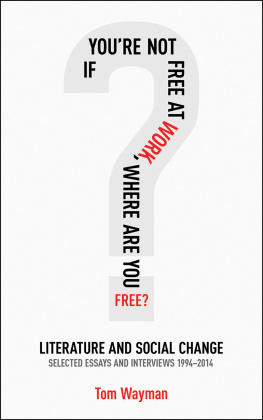

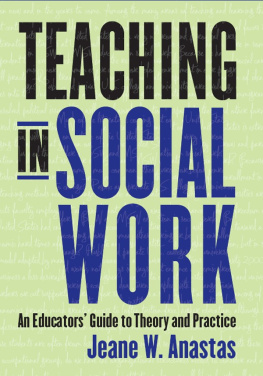
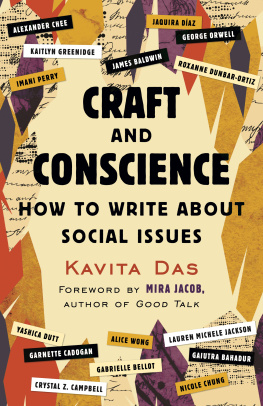
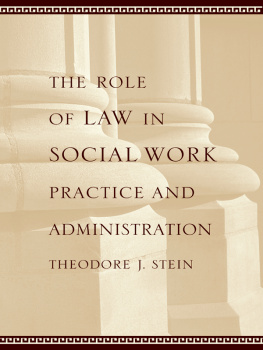
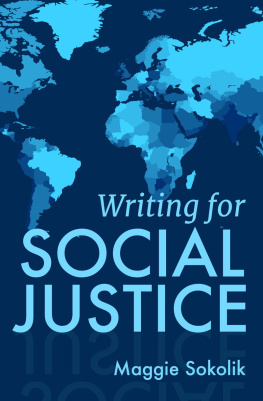
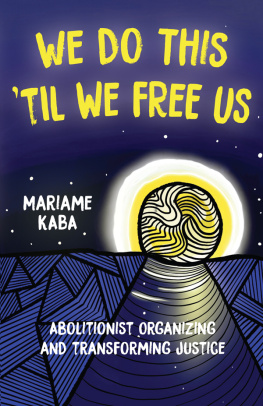




 TABLE OF CONTENTS
TABLE OF CONTENTS